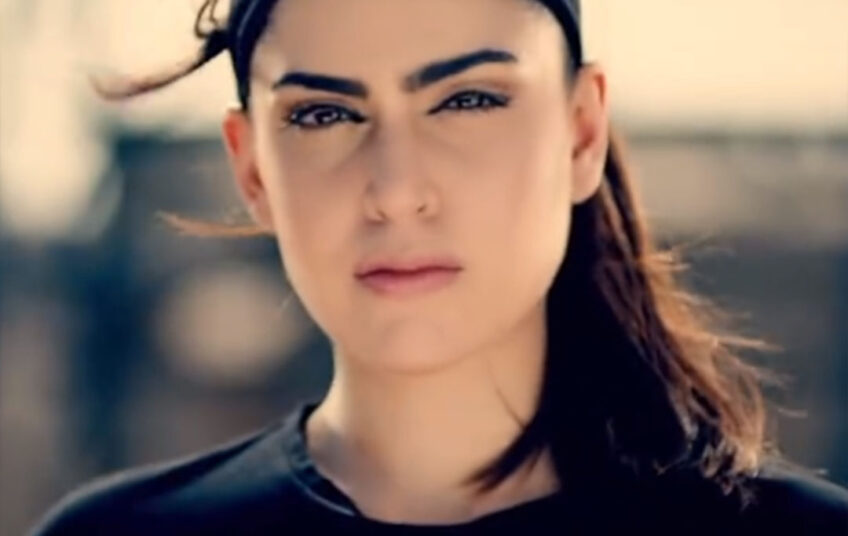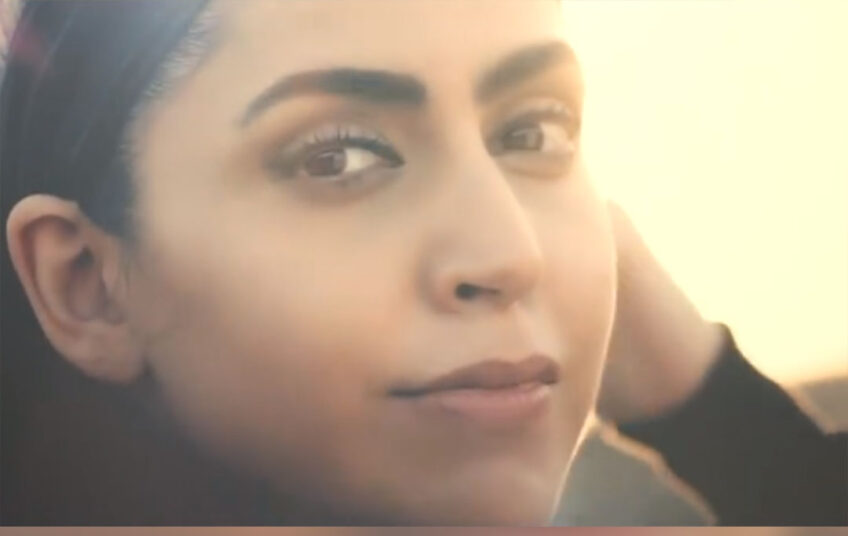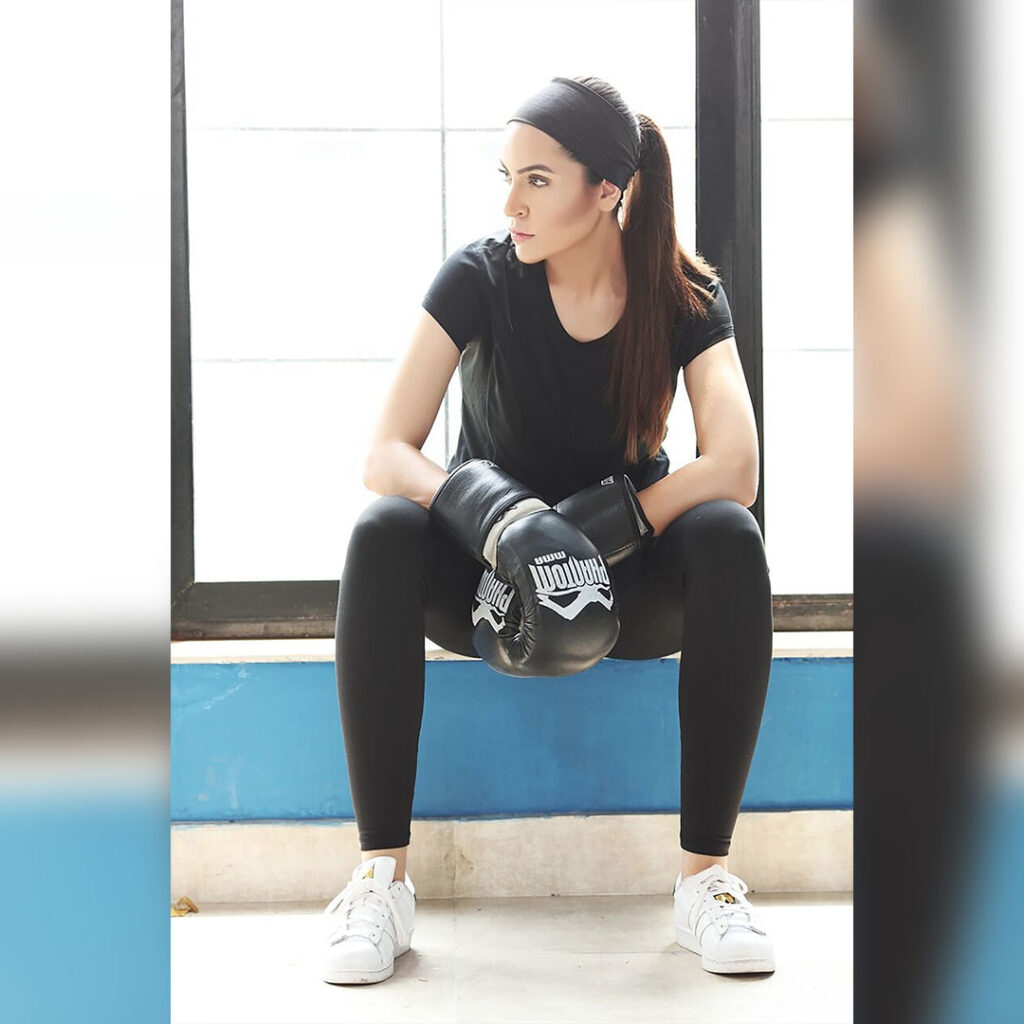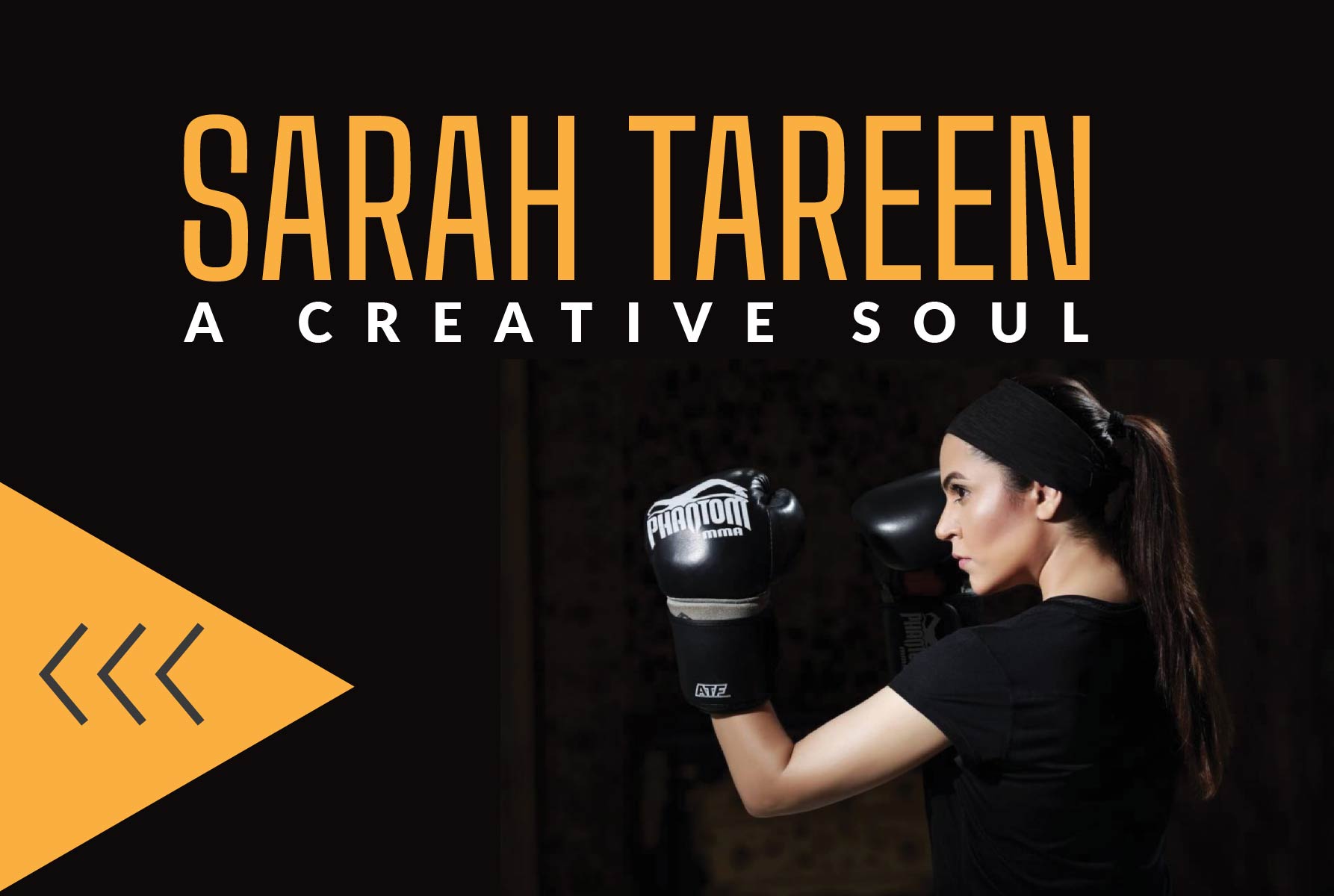Sarah has worked in the film/documentary sector for ten years working with international broadcasters, including Channel 4 and ARTE. She is amongst the pioneering female filmmakers in Pakistan to successfully complete and showcase her feature film in cinemas nationwide. Challenging the stereotype of a Pakistani woman, Sarah has trained in mixed martial arts for two years and aims to raise awareness on topics of women and children’s rights.
In an exclusive interview with Fashion Collection, Sarah talks about her passion for films and how she focuses on martial arts.

Fashion Collection: Why film making? What inspired you to step into the shoes of a filmmaker?
Sarah Tareen: I’ve always been a storyteller and had a better understanding through visuals. The cinematic experience being both auditory and visual leaves a lasting impact in the viewer’s mind. To be a part of this immersive experience inspired me to dabble in filmmaking.
Fashion Collection: What are your recent projects in the pipeline?
Sarah Tareen: I have a few projects in the pipeline as we speak. One is a feature documentary ‘Kids Fight’ that I am produced by UpNorth Films (Norway) and Fruitenmarket (Germany) on underprivileged children doing martial arts. I am co directing the film with Tonje Schei, director of the critically acclaimed documentary ‘Drone.’ I am also developing a slate of three feature films, one that is now in pre production and two that are in the development stages.
Fashion Collection: In your opinion, what are the core skills required to be film director?
Sarah Tareen: Filmmaking is about the resolve to never say die. I think you have to learn to accept rejections because you are going to get rejected at every level all the time even if you have good connections. This is where Mixed Martial Arts training has helped me to cultivate a fighting spirit and accepting victory or defeat with humility.
Fashion Collection: Tell us something about your work.
Sarah Tareen: I suppose that I’m definitely more interested in real-life stories on issues that ask questions as opposed to a rom-com because frankly there are a lot of others who can make such films better. Ultimately, cinema can mirror an individual’s tiny world, yet reveal infinite other worlds and that’s what I hope to do with my films.
Fashion Collection: What has been your main focus in terms of making documentaries?
Sarah Tareen: I don’t make the film to educate anybody about “my culture and my people” — I believe that to be simply a cultural ambassador of one’s country, especially in the context of cinema, is not necessary since film is a universal medium even if we tell ‘our’ stories. It is made for anybody beyond myself, it is for the people and to feel and take something away from the film through the character driven storylines showing the idiosyncrasies and brutality of life and going into the heart of the experience.

Fashion Collection: How is the Pakistani market in terms of promoting aspiring filmmakers?
Sarah Tareen: I am pleased to see that cinema in Pakistan is a growing business. Being one of the first film studies graduates in Pakistan when film studies was an alien concept in the country, it’s heartening to see different universities offering film and media studies degrees now and digital cinemas becoming a booming business with channels competing to distribute films. New producers are coming in the film business making films of various genres, which is a good sign. However, this is also a crucial time. As a nation, we (the stakeholders and the media fraternity) need to decide where we go from here. The distributors /exhibitors have to understand that they cannot rely on ‘Bollywood’ films to fill the seats in the multiplexes given the fragile relationship of the two countries. Therefore it is in their best interest to strategize the marketing of local films and maximize the full potential and the filmmakers have to understand the commercial variables of a nascent film sector that they are catering to. Moreover, like our tradition of television dramas, it is important to create a distinctive vocabulary in our cinema that has authenticity in itself.
Fashion Collection: From where can one learn film making in Pakistan?
Sarah Tareen: Three are many universities offering degree programs now. I also feel that experience is your best teacher, so go out there and intern on shoots and see how a film set operates. Now you have other avenues with online master classes with Hollywood film directors, scriptwriters and actors interacting with students with lessons and tips. Everyone wants to be a director but like any other profession, you must learn the fundamentals to gain that experience. I worked as a production manager for ten years on various projects before becoming an associate producer, then a producer on my own film working closely with the cast and crew as well as the logistics of budget, marketing and distribution and now I am directing my first film. It’s an evolutionary process and you will be learning at every stage.

Fashion Collection: why is documentary important – why should we make documentaries?
Sarah Tareen: In this era of international misunderstanding, as the threat of a global divide– culturally and politically — it is more dire than ever to produce documentaries. Documentary film is essential to a democratic society, which is why autocrats are threatened by it. Documentary film is a form that allows us to go in the other person’s world, with a shared bond of humanity. It gives a voice to the marginalized and questions the motives of the people in power. Laura Poitras’ Citizenfour for example played a key role in exposing illegal domestic government surveillance.
There is also an urgent need for the stories of people’s real world experiences and documentaries help in providing a broader and nuanced perspective of the world, with films like ‘Drone’ which explores the murky world of drone warfare through ordinary people, from the young gamers groomed to kill pilots to families left to deal with the aftermath, or “The last man in Aleppo’ a powerful documentary on the devastating Syrian civil war through the eyes of the volunteer White Helmets rescue workers. The film showed that even amidst desperate circumstances, humanity and kindness cannot be contained and gives a perspective into the Syrian war through the lives of ordinary citizens. In these times, we need the voices of documentarians more than ever to hold the powerful to account and explore the nuance of the world that is not shown in the mainstream media.
Fashion Collection: What advice would you give to someone who wanted to have a life creating film?
Sarah Tareen: If you dream big enough, anything can come true. Kidding, get to work! But on a serious note, Filmmaking is art but it’s also skill and a business. So keep learning. From staying updated on technology, network; get to know the market, read, watch films and do your research and work on your vision. Be determined, be flexible and keep moving.
Fashion Collection: What are your strengths and weaknesses as a filmmaker?
Sarah Tareen: I’m learning every day. As I reflect on my own learning curve, I realize that that mainstream South Asian cinema has had a strong influence on my body of work regardless of my exploration of diverse cultures. I think my biggest strength, as a person that translates into my film career, is that when I set my mind to anything it becomes an obsession and there is no looking back. My weaknesses are plenty, as I’m only human but every time I feel the urge to give up, my martial arts training helps me in staying grounded and teaches me that giving up is not an option. So I keep moving.

